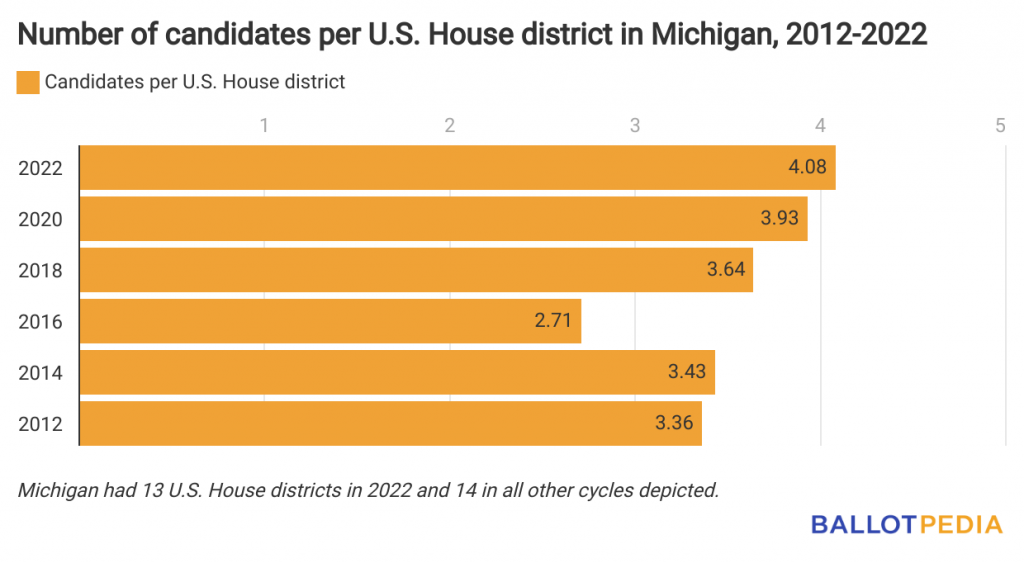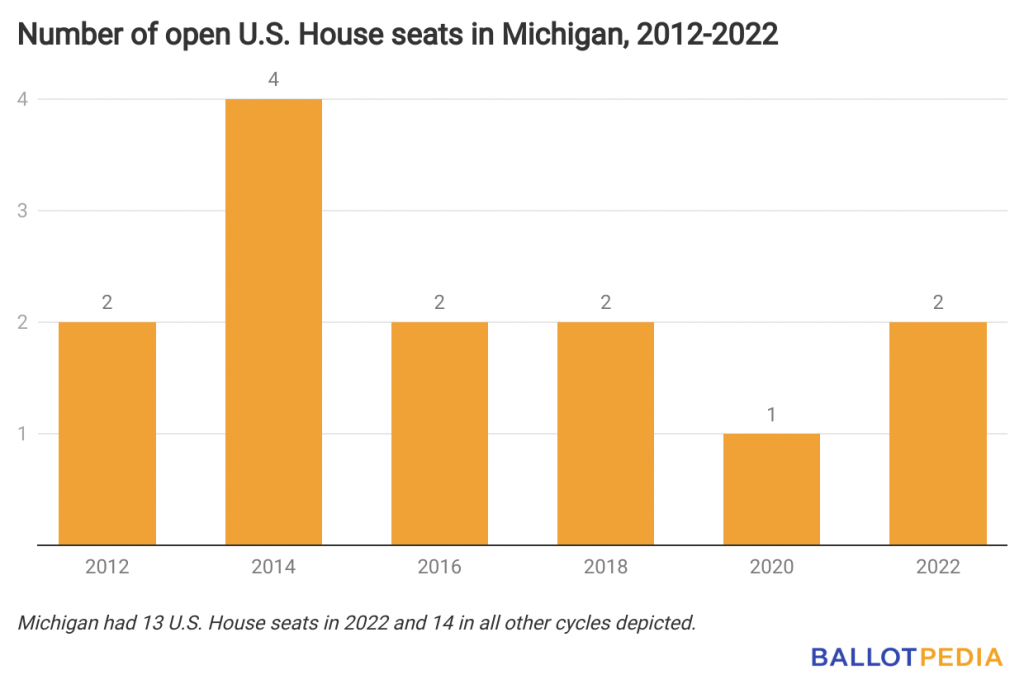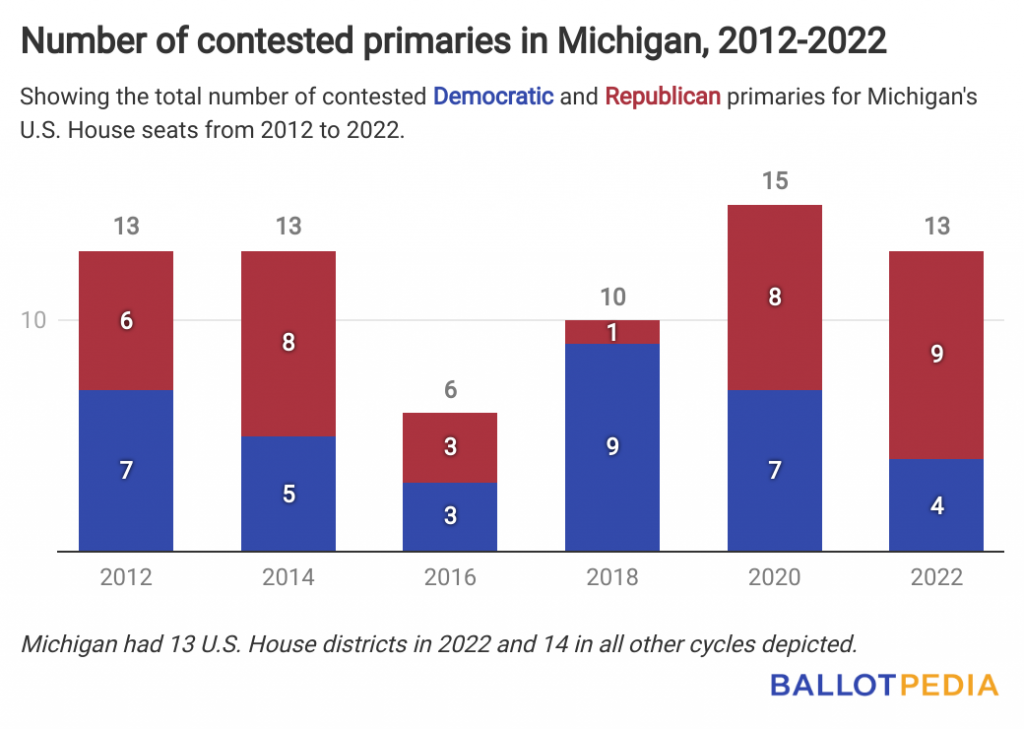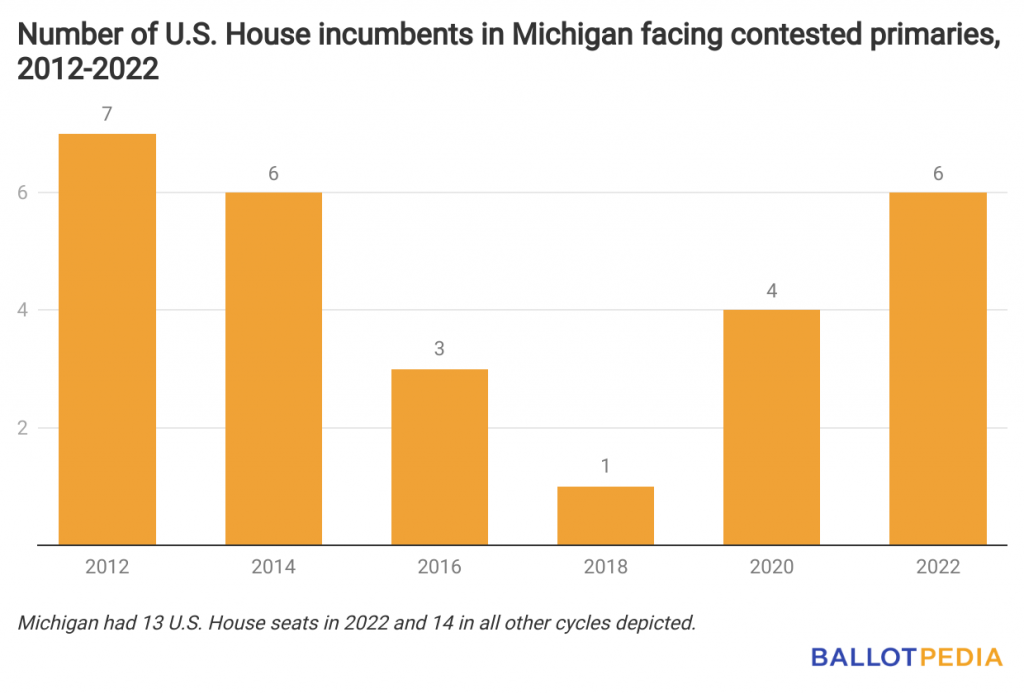The filing deadline for candidates running for Congress in Michigan this year was April 19, 2022. Fifty-three candidates are running for Michigan's 13 U.S. House districts, including 28 Democrats and 25 Republicans. That's 4.08 candidates per district, a decade-high, and up from the 3.93 in 2020 and 3.64 in 2018.

Here are some other highlights from this year's filings:
- This is the first election to take place under new district lines following the 2020 census, which resulted in Michigan losing one U.S. House district.
- The 53 candidates running this year are two fewer than in 2020, when 55 candidates ran, and two more than in 2018, when 51 candidates ran.
- Two districts — the 10th and the 13th — are open. That's up from one in 2020, and is the same number as 2018.

- Rep. Lisa McCLain (R), who represents the 10th district, is running in the 9th district this year, and Rep. Rashida Tlaib (D), who represents the 13th district, is running in the 12th.
- Rep. Andy Levin (D), who represents the 9th district, is running in the 11th district against incumbent Rep. Haley Stevens (D), making the 11th district the only district where two incumbents are running against each other this year.
- There are four contested Democratic primaries this year, down from seven in 2020 and nine in 2018.
- There are nine contested Republican primaries, a decade-high. That’s up from eight in 2020 and one in 2018.

- There are six incumbents in contested primaries this year, up from four in 2020, and one in 2018. That’s also one fewer than the decade-high of seven in 2012.

- Five incumbents — three Democrats and two Republicans — are not facing any primary challengers this year.
- One district — the 4th — is guaranteed to Republicans because no Democrats filed to run in the primary. No districts are guaranteed to Democrats because no Republicans filed.
Michigan and four other states — Arizona, Kansas, Missouri, and Washington — are holding primary elections on August 2, 2022. In Michigan, the winner of a primary election is the candidate who receives the greatest number of votes cast for that office, even if he or she does not win an outright majority of all votes cast.
Additional reading:


